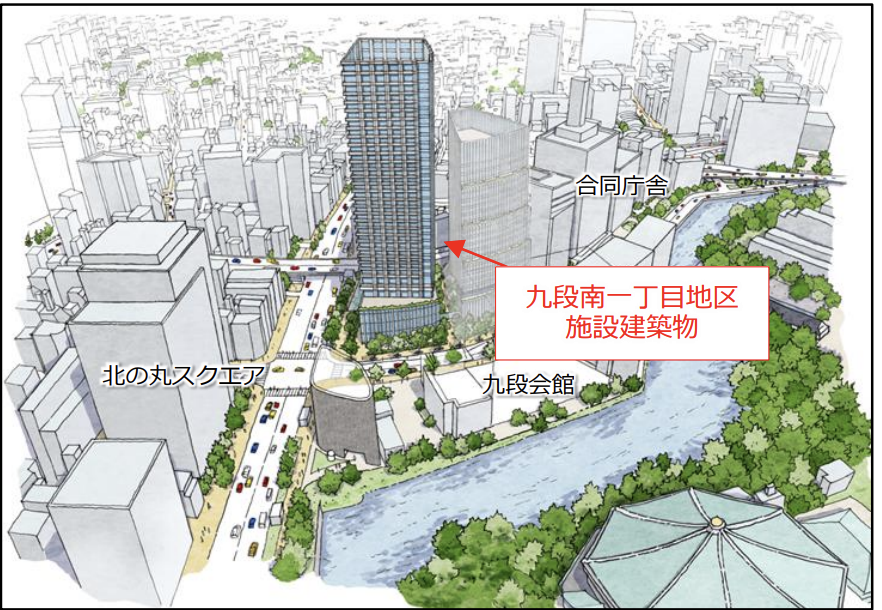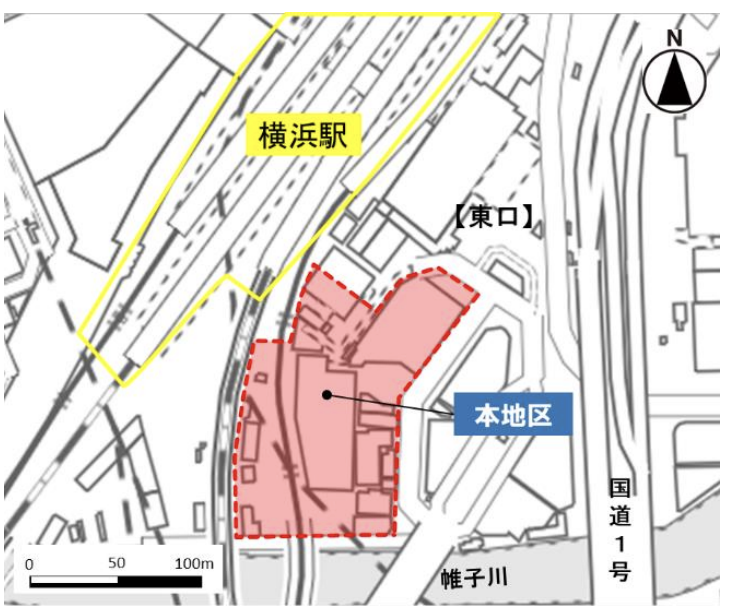Many people are concerned that they do not know what to do when they have difficulty repaying their mortgages. In fact, as of 2024, the mortgage delinquency rate is estimated to be around 0.3% to 0.4%, with 3 to 4 out of every 1,000 people having trouble repaying their loans.
Mortgage delinquencies and overdue payments, if left unchecked, can eventually lead to a serious situation of auction. However, many problems can be resolved by knowing the appropriate remedies and acting early.
In this article, INA & Associates, Inc. will explain in detail five specific measures to take when you have trouble repaying your mortgage, the risks of delinquency and overdue payments, and where to seek advice. Based on our extensive experience in the real estate industry, we will provide practical advice in a form that is easy for the average consumer to understand.
A home is the largest purchase in one's life and an important asset that serves as the foundation of one's family life. There is no need to give up even if repayment becomes difficult due to a temporary decrease in income or unexpected expenses. With proper knowledge and action, you can always find a way to solve the problem while protecting your home.
Current Status of Mortgage Arrears and Delinquencies and Basic Knowledge
Current Status of Mortgage Delinquency
Mortgage delinquency is a problem that can occur to anyone due to changes in economic conditions and personal living environments. According to a survey by the Japan Housing Finance Agency (JHF), a certain percentage of mortgage borrowers are experiencing difficulties in repaying their loans, and especially since the Corona disaster, the number of consultations due to decreased income has been on the rise.
Financial institutions are taking a step-by-step approach to mortgage repayment delays. The initial phase begins with a phone call or written communication, and progresses to legal proceedings if the situation does not improve. However, many financial institutions prioritize resolution through discussions with borrowers, and early consultation increases the likelihood of receiving a flexible response.
Difference between delinquency and overdue
In understanding mortgage repayment issues, it is important to accurately grasp the difference between "delinquency" and "overdue.
Delinquency is defined as a situation in which the loan is not repaid on the scheduled repayment date. It generally refers to a short delay of a few days to a month from the repayment date. In the overdue stage, if the financial institution contacts the borrower to promptly repay the loan, it is unlikely to develop into a major problem.
Delinquency is defined as a prolonged period of overdue payments, usually one month or more without repayment. If the delinquency continues, the financial institution will begin to consider legal proceedings to preserve the debt. If the delinquency period exceeds three months, the borrower loses the benefit of time and is likely to be asked to repay the remaining balance in a lump sum.
Calculation Method and Impact of Late Payments
Late repayments of mortgage loans are subject to late payment penalties. Late fees are calculated based on the interest rate specified in the contract and are added according to the number of days overdue.
The formula for calculating late fees is as follows
Late payment = balance of loan x late payment interest rate (annual interest rate) / 365 days x number of days overdue
For example, if the balance of the loan is 30 million yen, the interest rate for late payment is 14.6%, and the number of days of delinquency is 30 days:
30 million yen x 14.6% ÷ 365 days x 30 days = approximately 36,000 yen
As can be seen from this calculation example, the longer the delinquency period, the higher the late payment penalty. In addition, since the late fees are added to the principal, they create a vicious cycle that further increases the burden of repayment.
| Delinquency Period | Late payment charge for a loan balance of 30 million yen (annual interest rate of 14.6%) |
|---|---|
| 1 week | Approximately 8,400 yen |
| 1 month | Approx. 36,000 yen |
| 3 months | Approx. 108,000 yen |
| 6 months | Approx. 216,000 yen |
Effect on credit information
Mortgage delinquency has a significant impact on future borrowing due to registration with personal credit information agencies. In general, a delinquency of 61 days or more or three or more times will be recorded as "transfer information" on your credit report.
This information will continue to be recorded for five years after the loan is paid off, making it difficult to take out a new loan or obtain a credit card. Since there will be restrictions on refinancing the mortgage and using other financial products, it is extremely important to take action as soon as possible.
Five ways to deal with the inability to pay your mortgage
If you are having difficulty paying off your mortgage, choosing the right course of action can prevent the problem from becoming more serious. The following is a detailed explanation of five effective coping strategies.
2-1. Early Consultation with Financial Institutions and Modification of Repayment Terms
The most important action to take is to consult with financial institutions as early as possible. By contacting the financial institution from which you borrowed at a stage when repayment is likely to become difficult, various solutions can be considered.
The main repayment term modifications offered by financial institutions include
Extending the repayment period
This is a method of extending the repayment term in order to reduce the monthly repayment amount. For example, extending the remaining 20-year repayment term to 25 years will reduce the monthly repayment amount by approximately 15%. However, since the total repayment amount will increase, careful consideration should be given to future income prospects.
Reduced repayment for a certain period of time
To cope with a temporary decrease in income, the repayment amount is reduced for a period of 6 months to 2 years. After the reduction period, the repayment amount will either return to the original amount or be adjusted by extending the period.
Revision of Bonus Repayment
By incorporating the bonus repayment portion into the monthly repayment, the risk due to the instability of bonus payments can be reduced.
Change in Interest Rate Type
Changing from a floating rate to a fixed rate or extending the fixed rate term avoids the risk of future interest rate hikes.
These changes in terms usually incur a fee of between 5,000 yen and 30,000 yen, but considering the late payment penalties and the negative impact on your credit report, changing terms early on is a very effective option.
2-2. Consider refinancing your mortgage
Refinancing to a financial institution with more favorable terms than your current mortgage is an effective way to reduce your repayment burden. However, refinancing must be executed before any delinquencies occur.
Advantages of refinancing include
Reduction in repayment due to the difference in interest rates
Refinancing at a lower interest rate than your current rate can reduce your monthly and total repayments. Refinancing benefits tend to be greater when the interest rate difference is 0.5% or more.
Review of repayment period
By extending the repayment period at the same time as refinancing, the monthly repayment burden can be reduced.
Change in interest rate type
By changing from a variable interest rate to a fixed interest rate, you can avoid the risk of future interest rate hikes.
Refinancing incurs costs ranging from 500,000 yen to 1,000,000 yen in administrative fees, guarantee fees, and registration fees. Careful consideration is required as to whether the benefits of refinancing outweigh these costs.
2-3. Resolution through voluntary sale
If a solution is difficult even with changes in repayment terms or refinancing, a voluntary sale is an effective means of avoiding a foreclosure auction. A voluntary sale is a method of selling real estate at a price close to the market price with the consent of creditors.
The main advantages of voluntary sales are as follows
Sale price close to the market price
While the auction price is 60% to 70% of the market price, a voluntary sale can be sold at 80% to 90% of the market price.
Reduction of remaining debt
Due to the high sale price, the remaining balance of the mortgage can be significantly reduced.
Protection of privacy
The property is not published in a court notice as in an auction, and can be sold without being known to neighbors.
Adjustment of moving time
Through negotiations with the buyer, the timing of the move can be adjusted. In some cases, it is possible to raise moving expenses from the proceeds of the sale.
Cooperation with a real estate company with expertise is essential for a successful voluntary sale. It is necessary to properly carry out complex tasks such as negotiating with creditors, securing buyers, and coordinating various procedures.
2-4. Consultation with Specialized Agencies
Mortgage repayment problems can be difficult to solve alone. The following specialized institutions offer free or low-cost consultation services.
Japan Housing Finance Agency (JHF) Consultation Service
If you are using Flat 35, you can use the repayment consultation service of the Japan Housing Finance Agency (JHF). Specialist staff are available to assist with changes in repayment methods and various procedures.
Counseling Service of Japanese Bankers Association
This is a counseling service for bank-affiliated mortgage loan customers. Through phone calls or in person, expert counselors will assist you in reviewing your repayment plan.
Legal Counseling by Houterasu
If you have a legal problem, Houterasu offers free or low-cost legal consultations. You can obtain professional advice on legal procedures for debt consolidation or voluntary sale.
Mortgage Advisors
This is a consultation service provided by an advisor with expertise in mortgage loans. Advice is available from a neutral standpoint on refinancing or reviewing repayment plans.
2-5. Consideration of Legal Procedures
If the debt cannot be resolved by other methods, it is necessary to consider debt restructuring through legal procedures.
Individual rehabilitation
By using the Special Clause on Housing Loan (Special Clause on Housing Loan), other debts can be substantially reduced while maintaining the house. This is available when debts other than the mortgage are 50 million yen or less.
Voluntary liquidation
This is a procedure to change repayment terms through direct negotiation with creditors without going through the court. The mortgage is excluded, and only other debts are reduced, allowing you to keep your home.
Bankruptcy
This is a procedure in which all debts are discharged, but the house is disposed of. However, the minimum amount of property necessary for living will be protected, thus ensuring a foundation for rebuilding one's life.
Each of these legal procedures has its own advantages and disadvantages. It is important to fully consult with an attorney, judicial scrivener, or other specialist and select the most appropriate method for your individual situation.
Flow and Timeline from Mortgage Arrears to Auction
Continued delinquent mortgage payments may eventually lead to foreclosure proceedings. Understanding this process will help you take appropriate action at each stage.
Initial stage of delinquency (day 1 to month 1)
A few days from the day after the repayment date
The financial institution will contact you by phone. At this stage, the possibility of simple forgetting to make a deposit is considered, and the response will be relatively gentle. If you make the deposit promptly, it will not cause any major problems.
One to two weeks later
In addition to the phone call, a written demand letter will be sent. The reminder letter will include details of the overdue principal, interest, and late payment charges.
One month later
A formal written demand is sent. At this stage, financial institutions begin to carefully evaluate the debtor's willingness and ability to repay.
Mid-term stage of delinquency (2-6 months)
After 2 months
The guarantee company sends a notice of subrogation. Subrogation means that the guarantee company will make a lump-sum repayment of the remaining balance to the financial institution on behalf of the debtor. This notice serves as a final warning for the execution of subrogation.
After 3 months
A notice of forfeiture of the benefit of time will be sent. With this notice, you lose the right to repay the debt in installments and are required to repay the remaining balance in a lump sum. At the same time, subrogation by the guarantee company will be executed.
Four to six months later
The guarantee company will send a request for lump-sum repayment. At this stage, the guarantee company becomes the new creditor, and stricter debt collection procedures are initiated.
Auction Procedure Stage (6-12 months)
After 6 to 8 months
The guarantee company files an auction petition with the court. If the auction petition is accepted, the foreclosure is registered in the real estate registry.
After 8 to 10 months
A court execution officer conducts an investigation of the current status of the property. The court execution officer and a real estate appraiser visit the property, take photos of the exterior and interior, and assess the standard auction price.
10 to 12 months later
A notice of auction period bidding will be sent and the auction period bidding will begin. The bidding period usually lasts about one week, and the bidder with the highest price is the successful bidder.
Procedures after the auction (after 12 months)
One to two months after the successful bid
Upon payment of the price, ownership is transferred to the successful bidder. The former owner must vacate the property by the deadline set by the court.
After moving out
If the remaining mortgage cannot be paid off with the auction proceeds, the obligation to repay the remaining debt continues. A repayment plan for the remaining debt will be discussed with the guarantee company.
| Steps | Period | Main Procedures | Possibility of Coping |
|---|---|---|---|
| Initial stage | 1 day to 1 month | Telephone reminder, written reminder | High |
| Medium-term stage | 2 to 6 months | Subrogation, loss of benefit of time | Medium |
| Auction stage | 6-12 months | Auction petition, status investigation, bidding | Low |
| After auction | After 12 months | Transfer of ownership, eviction, repayment of remaining debt | Difficult |
Possible coping periods at each stage
Most effective coping period
Within 3 months of delinquency is the period when the most options can be considered. Within this period, various solutions can be implemented, such as negotiating with financial institutions to change repayment terms, refinancing, and voluntary sales.
Period during which a voluntary sale is possible
Even after filing a petition for auction, a voluntary sale is possible until the day before the bid opening date. However, as the auction process progresses, the difficulty of securing a buyer increases, so it is important to make a decision as early as possible.
Final Action Period
After the auction opening date, legal remedies are extremely limited. At this stage, the focus should shift to developing a repayment plan for the remaining debt.
Difference between voluntary sale and auction and criteria for selection
If you have difficulty repaying your mortgage, you may eventually have to let go of the property. In this case, there are two options available: voluntary sale and auction, each with significant differences.
Comparison of Price Differences
The most significant difference between voluntary sale and auction is the sale price. The table below shows a comparison of sale prices, assuming market price as 100%.
| Sale Method | Sold Price (% of Market Price) | In the case of a 30 million yen property | Residual Debt Reduction Effect |
|---|---|---|---|
| Normal sale | 95% to 100 | 28.5 million yen to 30 million yen | Maximum |
| Voluntary sale | 80% to 90 | 24 million yen to 27 million yen | Large |
| Auction sale | 60%~70 | 18 million yen to 21 million yen | Small |
This price difference makes a significant difference in the effect of reducing the remaining debt. For example, in the case of a property with a market price of 30 million yen and a mortgage balance of 25 million yen:
- Voluntary sale (sold at 85%): sold for 25.5 million yen, remaining debt of 500,000 yen
- Auction sale (sale at 65%): Sold for ¥19.5 million, with a remaining debt of ¥5.5 million
In this example, the remaining debt can be reduced by 5 million yen through voluntary sale.
Difference in procedures
Procedures for voluntary sale
A voluntary sale is a normal real estate transaction conducted with the consent of the creditor. The seller (debtor) becomes the subject, and a mediation contract is concluded with a real estate company, and sales activities are performed.
Procedural flow:
1. Application for voluntary sale to a creditor
2. Selection of a real estate company and mediation contract
3. Property appraisal and determination of an offer price
4. Start of sales activities
5. Sales contract conclusion with a buyer
6. Settlement and delivery
Auction Procedure
An auction is a compulsory sale procedure initiated by the court. It proceeds regardless of the debtor's will and is conducted in accordance with the procedures established by the court.
Procedures:
1. Creditors file a petition for auction
2. Registration of foreclosure by the court
Investigation of the current condition of the property
4. Preparation of valuation report
Periodic bidding
Bid opening and determination of successful bidder
Payment and transfer of ownership
Comparison of merits and demerits
Merits of voluntary sale
-Possible to sell at a price close to the market price
-The time of sale can be adjusted.
-Moving expenses may be able to be raised from the proceeds of sale.
-Can be sold without the neighbors knowing about it
-The repayment terms of the remaining debt can be negotiated flexibly.
Disadvantages of voluntary sale
-Consent of creditors is required.
-Need to find a buyer within a certain period of time
-Selection of a real estate company and sales activities are necessary.
-If the sale price does not meet the creditor's expectations, there is a possibility that the creditor will not agree to the sale.
Advantages of an auction
-Less procedural burden on the debtor
-Sales are executed with certainty.
-It is a legally established procedure.
Disadvantages of auction
-The sale price is much lower than the market price.
-Timing of sale cannot be adjusted
-The sale becomes public by the court's public notice.
-Difficult to raise moving expenses
-High possibility of having a large amount of remaining debt
Selection Criteria
When you should choose voluntary sale
-The property has market value.
-Creditors are cooperative to a voluntary sale.
-You can conduct the sale within a certain period of time.
-You value your privacy.
-You want to minimize your remaining debt.
If you accept an auction
-Unable to agree to a voluntary sale
-Lack of time to conduct sale activities
-The market value of the property is extremely low.
-Want to avoid the burden of the procedure
Key Points of Success
Key points of success in voluntary sales
Early decision: By making a decision on voluntary sale at the stage before filing a petition for auction, a sufficient sales period can be secured.
Selection of a specialist: It is important to select a real estate company with extensive experience in voluntary sales.
3. Good relationship with creditors: Maintaining a relationship of trust with creditors and showing a cooperative attitude will enable flexible negotiation of terms and conditions.
Setting a fair price: By properly grasping the market price and setting a realistic offer price, an early sale can be achieved.
Voluntary sales have many advantages over auction sales, but success requires proper preparation and expertise. Early consultation and action will ensure the best possible outcome.
Conclusion
If you are having trouble repaying your mortgage, it is most important to take early action and not to suffer alone. By properly utilizing the five coping strategies described in this article, many problems can be resolved.
Organization of Important Points
1. Importance of early consultation: By consulting with financial institutions at the stage when repayment is likely to become difficult, various solutions can be considered.
2. Step-by-step response: It is important to select the appropriate course of action according to the situation, such as modification of repayment terms, refinancing, voluntary sale, or legal proceedings.
3. Use of specialists: Because mortgage issues are complex, it is effective to collaborate with specialists such as real estate companies, lawyers, and financial planners.
4 . Recognize time constraints: There is approximately one year between delinquency and foreclosure, but options diminish over time.
Next Action Steps
If you are concerned about repaying your mortgage, we recommend that you take the following steps
1. Assess the current situation: Detailed analysis of household income and expenditure and consideration of future income prospects
2. Consult with financial institutions: Early consultation with your financial institution and consideration of changes to repayment terms.
Consultation with specialists: Depending on the situation, consult with real estate companies and legal experts.
Implementation of specific solutions: Select and implement the most appropriate measures.
A house is an important asset that serves as the foundation of a family's life. Even if there are temporary difficulties, it is possible to solve problems and maintain a safe and secure living environment through appropriate measures.
INA&Associates Inc. provides consultation on mortgage repayment. With our extensive experience in the real estate industry, we can provide the best solution for each client's situation. Please feel free to contact us if you have any questions or concerns.
Frequently Asked Questions
Q1:Is it OK if I am one time delinquent on my mortgage?
A1:It is considered that a single delinquent payment is unlikely to develop into a major problem if the loan is repaid promptly. However, since late fees will be incurred, it is important to repay the loan as soon as possible. We also recommend that you analyze whether the reason for the delinquency is temporary or ongoing, and consult with your financial institution if necessary.
Q2:What methods are available to modify repayment terms?
A2:Major changes to repayment terms include (1) extending the repayment period, (2) reducing the repayment amount for a certain period, (3) revising bonus repayments, and (4) changing the interest rate type. Although these modifications incur fees, they are valid options when compared to losses due to non-payment. Since the conditions that can be met vary from financial institution to financial institution, you should check with your lender for details.
Q3:Which should I choose, voluntary sale or auction?
A3:In general, voluntary sales are more advantageous. In a voluntary sale, it is possible to sell at 80-90% of the market price, whereas at an auction it is 60-70%. In addition, there are many advantages, such as adjusting the timing of the sale and protecting privacy. However, early decision and proper preparation are important, as it is necessary to secure the consent of creditors and a buyer within a certain period of time.
Q4:Where can I get advice on mortgage loans?
A4:The place to consult depends on the situation. First, consult with the financial institution where you are borrowing and consider the possibility of changing the repayment terms. Other professional organizations such as the Japan Housing Finance Agency, the counseling service of the Japanese Bankers Association, Houterasu, and mortgage loan advisors are also available. If legal issues are involved, consider consulting a lawyer.
Q5:What happens to the remaining balance after the auction?
A5:If the sale price at the auction is less than the remaining mortgage balance, the obligation to repay the remaining debt will continue. We will discuss the repayment plan with the guarantee company and determine the monthly repayment amount. If repayment is difficult, you should consider debt settlement procedures. Although the remaining debt may be extinguished by the statute of limitations, it is important to go through the appropriate legal procedures.

Daisuke Inazawa
Representative Director of INA&Associates Inc. Based in Osaka, Tokyo, and Kanagawa, he is engaged in real estate sales, leasing, and management. He provides services based on his extensive experience in the real estate industry. Based on the philosophy that “human resources are a company's most important asset,” he places great importance on human resource development. He continues to take on the challenge of creating sustainable corporate value.

.png)













